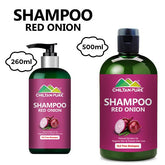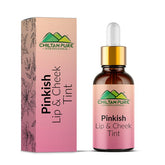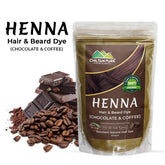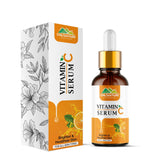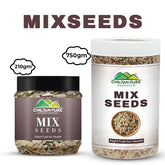Most Effective Herbal Teas - Benefits, Uses, Types & Treatments!
Herbal teas, sometimes called tisanes, are very similar to white teas, but they contain a blend of herbs, spices, fruits, other plants, and tea leaves. Herbal tea comes under the list of beverages with aroma, taste, and healing properties. Herbal teas don't contain Caffeine, which is why they're known for their calming properties.
The perks of consuming herbal tea include the following:
- Relaxing the body.
- Cooling the body temperature.
- Easing the sour stomach.
- Reducing fluid retention in the body.
Herbal tea is cooked by adding different plants in water, which can be served hot and cold, depending upon the user's preference.
- They're low in calories. Many herbal teas are common in calories, but some are not. If you're looking for a caffeine-free herbal tea that has few calories
- Herbal teas are delicious. Many herbal teas taste great, making them a tasty beverage option for those who want a healthy beverage that doesn't come with added calories or sugar.
- They're versatile. Many herbal teas can be used as a refreshing beverage or brewed into delicious herbal tea. You can drink herbal teas hot or iced, making them a great beverage option for all seasons.
- They're less toxic than other drinks. Many herbal teas have less sugar than other drinks, making them a potentially less-toxic option for those who want to reduce the risks of diabetes and cardiovascular disease.
If you are looking for the most effective tea, only shop Chiltanpure's herbal teas!
Mentioned Below are the Best Health Benefits of Herbal Tea
- Cure cough and cold

Cough and cold are common issues; you can health them by drinking herbal tea made of 'elder tree.' It reduces the decongestion in the nasal cavity and throat soreness and cures a cold & cough. Other herbal teas suitable for cold & cough are Clove Tea, Ginger Tea, and Licorice Tea.
- Fight against infections
If there is an early-stage infection, Herbal Tea is good to consume. Herbal tea has anti-fungal qualities and can fight against diseases, mainly yeast infections.
- Boost iron in the body
Both men and women need iron to manufacture red blood cells (RBC) to maintain adequate hemoglobin levels. So, as herbal teas contain a good amount of calcium, iron, silica, and essential minerals in the body, these are the best to boost mineral deficiency.
- Shows anti-inflammatory effects
The herbal teas contain anti-inflammatory properties to relieve rheumatic aches caused due to widening of blood vessels. Patients who have arthritis can use white clover tea herbal tea to fight inflammation.
- Effective for Good Sleep

People with insomnia can quickly sleep by sipping a hot cup of Chamomile tea a few minutes before bedtime. This herbal tea contains Tryptophan, an amino acid that relaxes the body and makes it fall asleep. However, Chamomile tea is effective in mild insomnia.
- Rejuvenates Tissue Cells
Herbal tea is a boon for cell rejuvenation and growth. It makes the body's tissues stronger, and as it is rich in antioxidant properties, it prevents cell damage due to pollution or the effect of free radicals. It is even said that herbal tea is good for lowering the aging process.
- Soothe Stomach Issues

Due to poor eating habits and food quality, our stomach often gets upset. However, several herbal teas are known for their stomach-soothing properties. Herbal tea, like turmeric Tea, helps relieve stomachache, flatulence, colic, and constipation. It also promotes better digestion of food and reduces gastric problems.
- Maintains Proper Kidney Health
As herbal teas are known to detoxify the body, they flush out toxins and promote good health. Marshmallow Tea, Parsley Tea, and Chamomile Tea are known for their great benefits.
- Relieve Stress and Anxiety Issues

The ultra-properties of herbal teas are also known to relieve stress and, in many cases, work as an anti-depressant. Herbal teas calm the mind and release chemicals in the brain that fight anxiety and depression. Chamomile tea is best known for its relaxing property.
- Acts as a Blood Sugar Regulator
Patients with mild diabetes or not dependent on insulin have noticed a significant improvement upon consuming specific herbal teas like hibiscus. Herbal teas help lower blood sugar levels and are widely used in diabetic neuropathy.
- Control Nausea and Vomiting
Although it is an orthodox remedy, it works wonders. Herbal teas are known for relieving morning sickness and nausea. Ginger tea is the best example.
- Antioxidant
Herbal teas are excellent sources of antioxidants, which have the potential to ward off the harmful effects of oxidative stress. Oxidative stress is caused by an imbalance between the production of reactive oxygen molecules and the ability to neutralize them. Antioxidants can help maintain the balance between these two molecules, resulting in better health and longevity.
- Help with Constipation
If you're looking for herbal teas that may help with constipation, green tea is a great choice. Green tea is rich in plant chemicals called phenols that may help to soften stools by increasing their water content. Green tea may also reduce bloating and aid in treating constipation due to medical conditions such as Crohn's disease and inflammatory bowel disease.
Below is the List of Famous Teas
- Chamomile tea

Chamomile tea is more than just a calming beverage to consume before bedtime. Chamomile contains a variety of bioactive phytochemicals, notably flavonoids, which function as antioxidants. It also contains small amounts of minerals and vitamins, such as Potassium, calcium, carotene, and folate, among other nutrients.
Chamomile benefits include a lower risk of death from heart disease and immune system support. Chamomile tea may also help women who suffer from premenstrual syndrome: The Tea's anti-inflammatory and anti-anxiety effects. Interestingly, chamomile might even slow age-related bone loss.
- Hibiscus tea

Lastly, hibiscus tea is made from the brightly coloured flowers of the hibiscus plant. The most common colours of the beautiful blooms are red-orange, pink, yellow, and white. In addition to providing antioxidant power, hibiscus tea contains small amounts of Potassium, calcium, magnesium, and other trace minerals.
Hibiscus tea offers antiviral and cardiovascular benefits, mainly due to the antioxidant "anthocyanin." This herbal tea is effective against some strains of bird flu; hibiscus tea may help lower blood pressure.
- Green Tea
Green tea carries the ability to improve blood flow & lower cholesterol. It helps prevent heart-related issues, from high blood pressure to congestive heart failure. What's good for the heart is usually good for the brain; your brain needs healthy blood vessels too.
- Ginger Tea
Ginger tea is excellent for those looking to improve their digestive health. It is a tea brewing fresh or dried ginger root in hot water.
Ginger is a popular spice with a long history of use in traditional medicine. Ginger tea is rich in Gingerol, a compound with powerful medicinal properties. Some health benefits of drinking ginger tea include relieving nausea, reducing inflammation, and boosting brain function. Ginger tea is also suitable for digestion and can help to soothe an upset stomach.
- Lavender Tea
Lavender tea is not only incredibly fragrant but also offers various health benefits. Lavender tea is a herbal tea made from the Lavandula plant. This plant is native to countries in the Mediterranean region, but it is now grown all over the world. Lavender tea has a light, floral taste and can be enjoyed hot or cold and is made by steeping Lavandula flowers in hot water.
Lavender is a natural relaxant, and drinking a cup of lavender tea before bed can help you to wind down after a long day and get a good night's sleep. It can also help to soothe an upset stomach and relieve nausea.
In addition, lavender tea has antimicrobial properties, which can help fight off infections.
- Joshanda Tea
Joshanda is a well-known herbal tea that helps with colds, coughs, sore throats, nasal congestion, flu, and influenza. Joshanda tea helps to fight allergies and asthma treatment. It is helpful for the treatment of respiratory ailments and inflammatory conditions caused by seasonal changes and provides relief from expectoration. This tea is relaxing and effective, yet it imparts freshness, calmness, and a delightful aroma with warmth in every sip. Chiltanpure Joshanda tea is also recommended for babies because it has no side effects.
Uses of Herbal Tea
Herbal teas come under beverages made by infusing different herbs in hot and cold water. The ingredients of herbal teas can range from herbs to spices. Moreover, it does not contain Caffeine and thus is healthy for the body. All around the world, people use different types of herbal tea to detoxify their bodies and rejuvenate their senses. People also sip on herbal teas to free the body from many health ailments, such as colds & coughs, lousy digestion, inflammation, and infections.
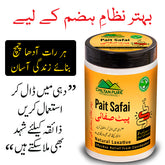



![Red Onion Oil 🧅 Reduces Hair Fall & Accelerates Hair Regrowth [پیاز کا تیل].. Trending.... 🔥 - ChiltanPure](http://chiltanpure.com/cdn/shop/products/red-onion-oil-reduces-hair-fall-amp-accelerates-hair-regrowth-piaz-ka-til-trending-394813_165x.jpg?v=1707464619)
![Red Onion Oil 🧅 Reduces Hair Fall & Accelerates Hair Regrowth [پیاز کا تیل].. Trending.... 🔥 - ChiltanPure](http://chiltanpure.com/cdn/shop/products/red-onion-oil-reduces-hair-fall-amp-accelerates-hair-regrowth-piaz-ka-til-trending-329640_165x.jpg?v=1708127491)
